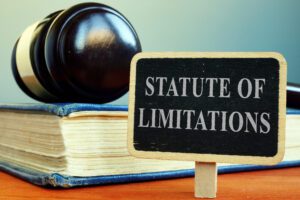Who Is at Fault in Most Motorcycle Accidents?
The short answer to this question is car drivers. However, that is not always the case. In some states where liability is divided, a car driver may be considered partially negligent, and a motorcyclist may be partially negligent as well. The actions of all parties involved in the collision are considered. Also, there may be other factors that contribute in addition to one or both parties’ negligence. It is important to understand how fault is determined, as well as how and when to proceed with a motorcycle accident lawsuit to compensate for injuries and damages.
Determining Fault in Motorcycle Accidents
There are many factors considered in determining fault. One of the most important factors is speed. If a car driver is speeding, the driver may not have time to notice a motorcyclist trying to turn or attempting to pass in another lane. The use of signals is also an important factor. For example, if witnesses see a motorcyclist speeding and weaving around traffic without signals, the motorcyclist may be at fault. However, if witnesses see that the motorcyclist is not speeding and is using proper signals, the car driver may be at fault. Further investigation may show that the car driver was distracted and did not see the motorcyclist.
Distraction is another important consideration, and intoxication of a driver is a factor that may determine fault in some cases. It is important to have a good attorney when trying to have an accident investigated to determine fault. Personal injury attorneys know how to work with law enforcement and other experts to recreate accident scenes and conduct a full investigation to determine or prove fault.
Contributing Factors in Motorcycle Accidents
Factors other than driver behavior can contribute to accidents. Weather is a common concern. If the roads are icy, wet or damaged, they can create hazardous conditions that can cause an accident even when motorists and motorcyclists are driving carefully. The position of the sun can be another factor.
For example, if a driver is squinting and cannot see well because the sun is setting while he is driving west, he may not see an approaching motorcyclist passing him in another lane or may not see that a motorcyclist ahead is slowing down quickly. Debris in the road and other factors can also contribute to accidents. When such factors exist, determining fault can be more challenging. However, a thorough investigation may still show that a driver is at fault or partially at fault.
When Is It Time to File a Motorcycle Accident Injury Claim?
If there are injuries or damages because of the accident, the victim may be entitled to compensation. Anyone who sustains injuries or experiences property damage because of an accident that is caused by another party can file a claim. There is a statute of limitations for filing a claim, and the time limits vary from state to state. Because time is limited, it is important to file a claim as quickly as possible and not wait years to file.
The statute of limitations applies to the time when the claim is initially made and not when it is settled. Some claims can take months or more than a year to complete. Since the financial award is not issued until the case is complete, filing a claim quickly is better than waiting. A personal injury attorney files the claim on behalf of the injured party and handles all correspondence, investigation matters and filing of court documents.

What Are the Steps in Filing a Motorcycle Accident Claim?
The first step is contacting an attorney. Some people do not know if they may be partially at fault or if they have a case for a personal injury lawsuit. An attorney can help determine this by asking questions and reviewing information about the accident. The attorney will tell the injured person if there may be a case. If there is, the attorney may accept the case. These are the steps to expect during the process.
Filing of a Personal Injury Complaint
If the attorney determines that the case’s losses are sufficient enough that they do not qualify for small claims court, the attorney files a complaint in the court that has jurisdiction where the accident occurred. If the party that caused the accident was arrested for intoxication, excessive speeding or any other reason immediately after the accident, those factors will be considered but will be handled separately in criminal court.
The personal injury case is a civil matter and pertains to the injuries of the victim and any property damage that resulted from the accident. After the complaint is filed, it is served to the defendant. The defendant must find an attorney. However, if the defendant is insured and cannot afford an attorney, that person’s insurance company may appoint one. The attorneys for the defendant and the injured party, or plaintiff, communicate with each other and the court.
Pretrial and Discovery
In this phase, the attorneys handle matters. The injured person may need to attend additional medical appointments in some cases. However, the attorney will notify the injured person about any requirements in advance. Both parties share information in this phase and try to work out a settlement. The attorney of the injured person relays information about settlement offers to the victim, and the decision to accept or reject offers is up to the injured person. If a settlement is accepted, the case ends.
Trial
If the settlement offers are unfair or unacceptable to the injured person, the case goes to trial. There is a jury selection process, which is followed by opening statements from the attorneys of both parties. They present their arguments and evidence. The judge addresses the jury, reads applicable laws and allows jury deliberation. Once a verdict is reached, it is read in court. The amount awarded by the judge may be higher or lower than the pretrial settlement offer if the plaintiff wins. Although the losing party may file for the verdict to be reconsidered, it is usually not changed. An attorney can advise an injured client if taking a case to trial may be better or if it is better to accept a settlement.
Why File a Personal Injury Claim?
The weeks and months following a motorcycle accident can be painful, traumatizing and exhausting. It is easy to feel overwhelmed by the stress of new medical problems and anything else that may have changed. For example, many people are unable to work after an accident. Their injuries may be temporary or permanent, and life responsibilities suddenly become more difficult. Although it may seem tempting to accept a quick settlement offer directly from an insurance company, the amount that the at-fault party’s insurance offers is typically low. Filing a personal injury claim means having an experienced attorney who is an advocate and knows how to fight for the maximum compensation.
These are some types of issues that attorneys consider when they ask for a fair settlement for an injured client:
- Current and future medical expenses.
- Loss of ability to continue a specific type of job.
- Inability to perform any type of work due to paralysis or severe disability.
- Loss of marital relationship or companionship due to injuries.
- Mental health issues due to injuries and reduced quality of life.
- Extent, severity or permanence of injuries from the accident.
The immediate effects of a motorcycle accident may only be the beginning for some people. Some types of injuries can create other health problems. For example, an injured limb may become infected and require amputation, which can lead to mental health issues and a permanent disability. Each case is unique, and an attorney spends hours analyzing every facet with the help of medical experts and other experts. A motorcycle accident attorney works hard to ensure that the victim can live as comfortably as possible.
Since an attorney handles all the hard work and only collects payment when the settlement award is issued, injured victims do not have to worry about doing more work or spending money while they are trying to cope with the accident’s aftermath. An attorney can also help an injured person find resources for temporary disability income, government assistance, mental health care and more. Please contact us to learn more about filing a motorcycle accident claim.
Our expert California injury lawyers are ready to defend you in your accident, injury, or negligence case. Contact us for a FREE evaluation. No win, no fee: you pay us only when we win your case.
Use this form to explain your situation, or call us at (888) 259-1113; we’re here for you 24/7.




